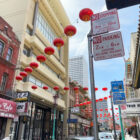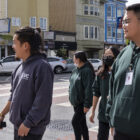PORT AU PRINCE, Haiti — I first met Michael Brewer in 2005 when I was in Port au Prince reporting on Citie Soleil, a notoriously violent ghetto at the time.
Michael, a Texas native and a registered nurse turned child advocate, ran a nonprofit organization called Haitian Street Kids Inc. and spent a lot of time in Citie Soleil helping homeless children.
I don’t recall what we talked about, other than he promised to introduce me to some street kids. But our schedules diverged and we never got together. However, we kept in touch periodically through emails after I left.
When the Jan. 12 earthquake struck Haiti, I e-mailed Michael immediately. He told me he had lost the four houses he had established for his program. Like the kids he helped, he was homeless. He established a camp on top of a desolate hill and lived in a hut surrounded by about 30 of his teenage kids he had been able to locate after the quake. He was trying to feed them, raise the money to re-establish his program and meet his own needs.
Michael’s plight felt more than a little familiar. Before I became a reporter, I worked with homeless people in the Tenderloin. I remember the 1989 Loma Prieta earthquake and the resulting damage to the building housing my nonprofit agency at the corners of Golden Gate Avenue and Leavenworth Street. City funds intended for homeless services were diverted toward earthquake relief and I had to scramble to keep my doors open. But now I was a reporter.
I asked Michael if I could stay in his camp for a week for a story. He agreed, but warned me I would be miserable.
“Bring plenty of insect repellent,” he said.
On April 25, 2010, Michael met me at the Port au Prince airport. We climbed into the back of a truck and sat on a wood bench, jostled back and forth as the driver negotiated traffic on the uneven pitted road. Kids on the street shouted at Michael and ran alongside the truck. He waved, his thick red hair swept back from his forehead by the hot, grit-filled breeze peppering his face.
After driving a few miles, we turned up a steep hill. Rocks spewed out from beneath the tires as we passed row after row of huts covered with plastic white and blue tarps. Dogs scavenged between the huts and children chased them, barefoot and sweat-soaked, in the stifling heat. Cresting the hill, the truck slowed to a stop near a cluster of square shaped huts. A few boys lounging on logs and rocks squinted at us while the dust generated by truck settled over them.
Michael wiped his forehead, considered the dry, cracked ground around us, the complete lack of shade beneath a sky white with heat, the empty cans of food licked clean by the dogs and littering the ground, along with cigarette butts and discarded fruit. The air was motionless. This was home now.
Michael had been in Texas fundraising when the earthquake struck. He flew back to Haiti, stunned by the numbers of collapsed buildings he saw, the bloated bodies piled like cords of wood on street corners. He still smelled the rot of death months later. He wondered how so many people became trapped in buildings. Why didn’t they just run out?
Then he experienced a 5.8 aftershock. Zero notice, he said. He was in bed and felt the power of it instantly. Everything began falling. He lost his balance, stumbled to the floor. It was like a bulldozer was slamming his room. No way out.
It was that sudden. My first night in the camp, a tall man in ill-fitting clothes approached Michael and began talking nonstop. He laughed, talked more, gestured wildly, laughed and continued talking.
He lives in another camp and wanders here from time to time, Michael said. The kids called him the crazy guy and asked Michael to kick him out, but he refused. He and the boys had little to do but survive. If the crazy guy wasn’t around, Michael said, they would have nothing to distract them. So he let the crazy guy stay and babble, his voice as loud as those of the boys demanding Michael’s attention. They needed clothes, food.
When Michael had a house, the boys never begged. They got up at such-and-such a time, ate at such-and-such a time, attended school, came home. Now they had no schedule. Adrift, they worried they would be left out of something.
What that something was they didn’t know, and the not knowing scared them more than the earthquake had. So they hit up Michael all the time for smokes, food, money, something — anything — not to feel left out and abandoned. Just to keep his attention on them.
I wilted from the heat inside my hut and left the door open. But other huts surrounding it prevent the rare breeze from coming through. One hut belonged to Kendy, a kid who has lived with Michael since he was 10 when Michael discovered him outside a hospital, homeless with a broken leg.
Kendy scrawled the names of his girlfriends on the walls of his hut: Kendy and Minion; Kendy and Monioniz; Kendy and Loulie; Kendy and Krystie; and Kendy and Donnuela.
Kendy was asleep during the earthquake. When his room started shaking, he panicked and tugged frantically at his door, forgetting to unlock it. The walls began collapsing and he jerked at the doorknob screaming until his roommate unlocked the bolt. The door swung open and they ran out. On the street, everyone was yelling. Buildings fell and the ground shifted underfoot, people emerged from the debris bleeding and ghostly, and Kendy kept running.
Michael had other kids in camp who, like Kendy, had been with him for years. They stay for the security of the only constant adult they have known. The kids ask him to find them jobs, but the jobs never materialize.
After the earthquake, a prosthetic factory offered to hire them. Michael had it all planned and then never heard from the factory owner again. Construction jobs, the same thing. The kids get all wired up and then nothing happens. They look at Michael as though he failed them. But they stay.
Street kids have no resources, he said. They are not in the child welfare system because they have no adult to register them. Orphanages don’t want street kids, and no family asks to adopt a 15-year-old or 16-year-old kid. Michael had one orphanage director tell him there was no money in helping teenagers. Michael asked him, “What business are you in again?”
Mormons adopted two boys he knew. You can change your life, they told him and the kids. He hated that. They assumed his life needed changing. They knew nothing about him or his kids. They needed to sit in the camp and get off their asses and do something, he thought. Well, they got off their asses and adopted two boys. Michael wasn’t crazy about the adoptions, but at least those two boys were in the U.S. now.
The next morning, I awoke to the crowing of roosters. The sun was not yet up and the air retained the fleeting coolness of night. I filled a bucket from a well and washed, by scooping water with my hands and splashing my body. Michael took a simpler approach. He poured water from a plastic bottle into one hand and tossed it against his face.
“I’ve had my shower,” he said.
A government camp stood at the bottom of our hill. It was fully occupied and no longer accepting new families, let alone an American with a bunch of street kids.
Long, even rows of brand-name tents shimmered in the hazy heat of sunset: Outback, Coleman, Outfitter. It was resplendent in purple-and-white canvas, with little patios and barbecue pits. There were lots of square feet to spare between each tent. The paths were paved with crushed white stones. A huge screen showed a movie and stadium lights illuminated the grounds. Music played.
I stood with some of the other boys and looked down on this Promised Land with its outhouses and showers and aromas of food. Michael sat in a broken plastic chair outside his hut, head in his hands. His cell phone was out of minutes. There was no money, no money. I was flying back to the states in the morning and promised to wire him $100. That would be nice, he said. Kendy was standing beside me. He closed his eyes and opened them. Closed and opened them again. The government camp remained before him.
It’s real, he told me.
It was as real — we both knew — as the barren, sweltering hilltop where they now lived.
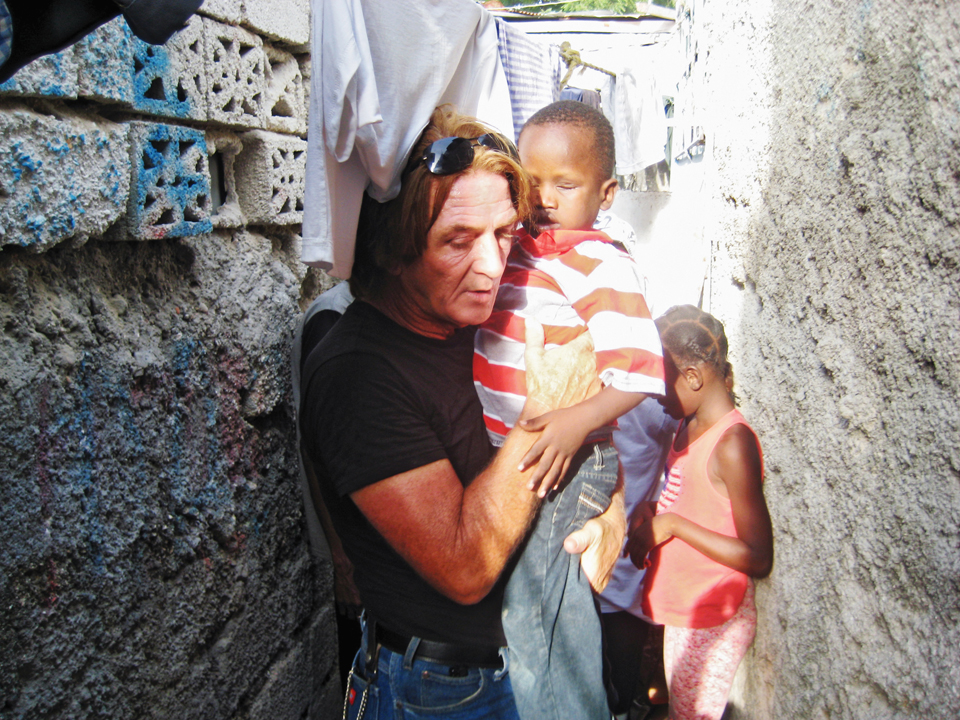
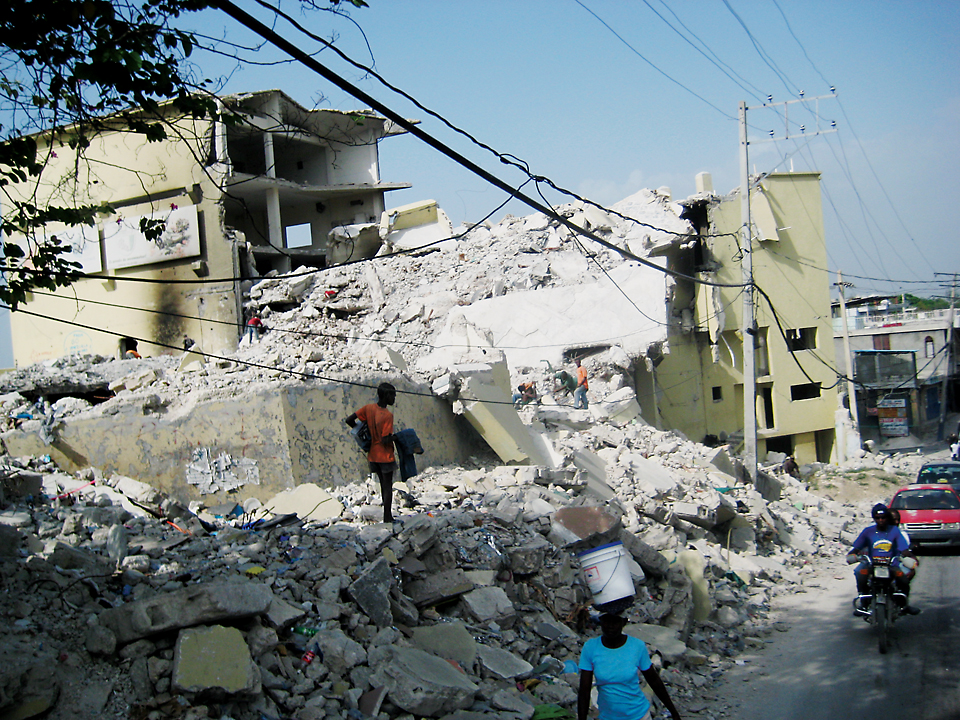
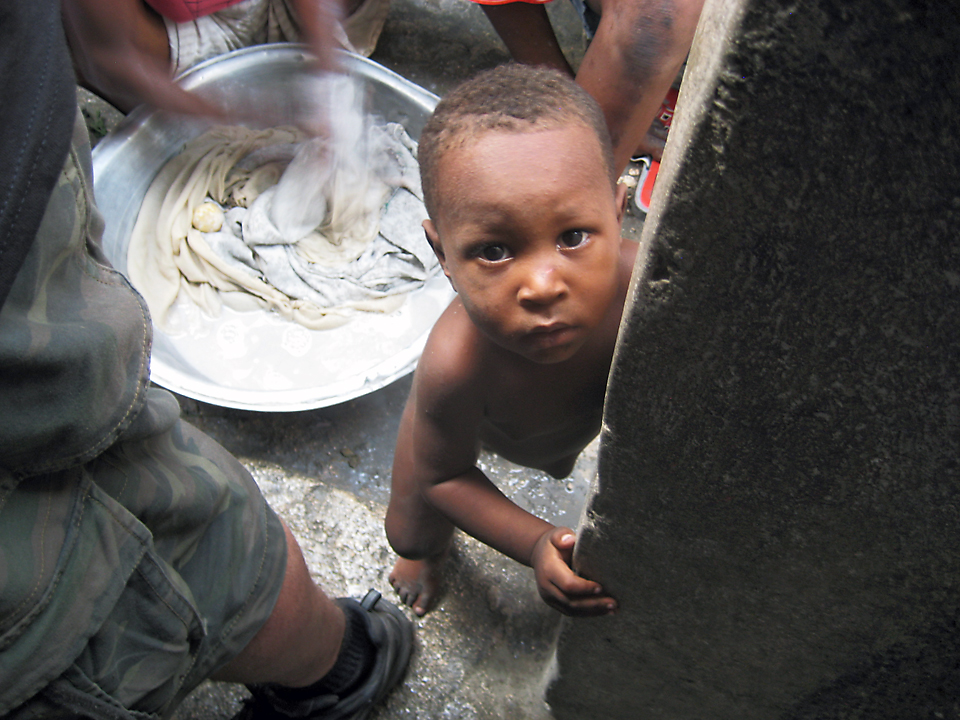
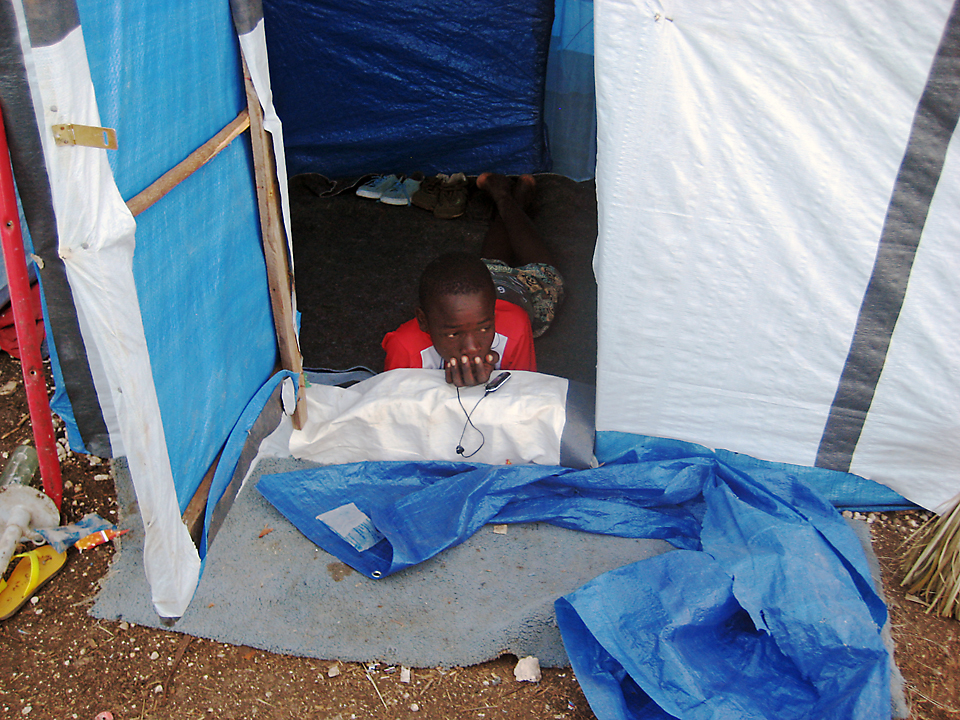
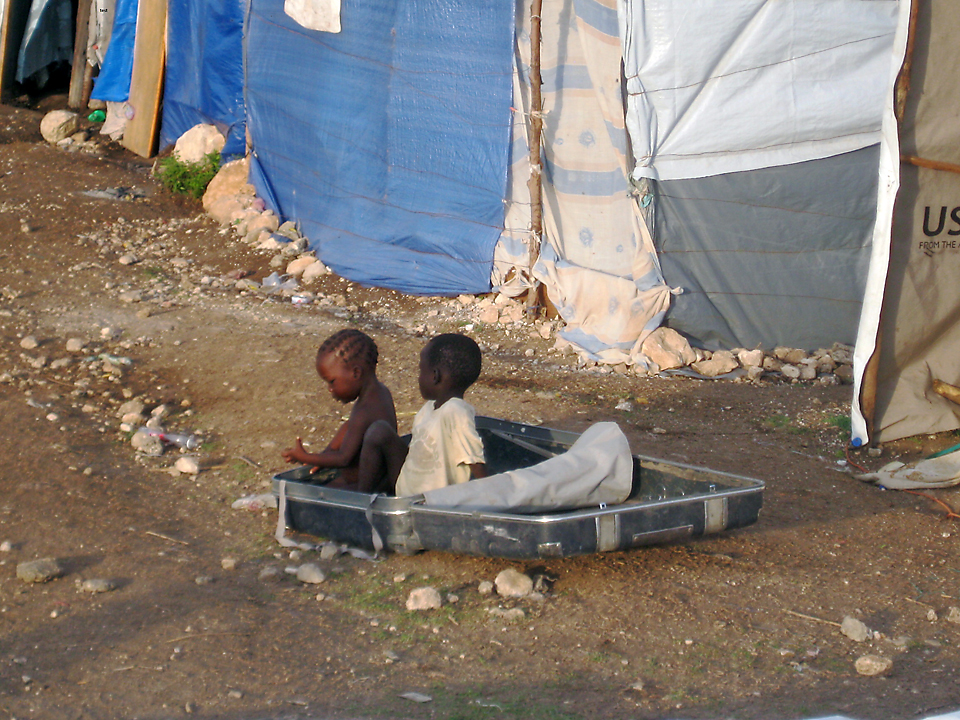
A version of this article was published in the summer 2010 pilot edition of the San Francisco Public Press newspaper. Read select stories online, or buy a copy.

